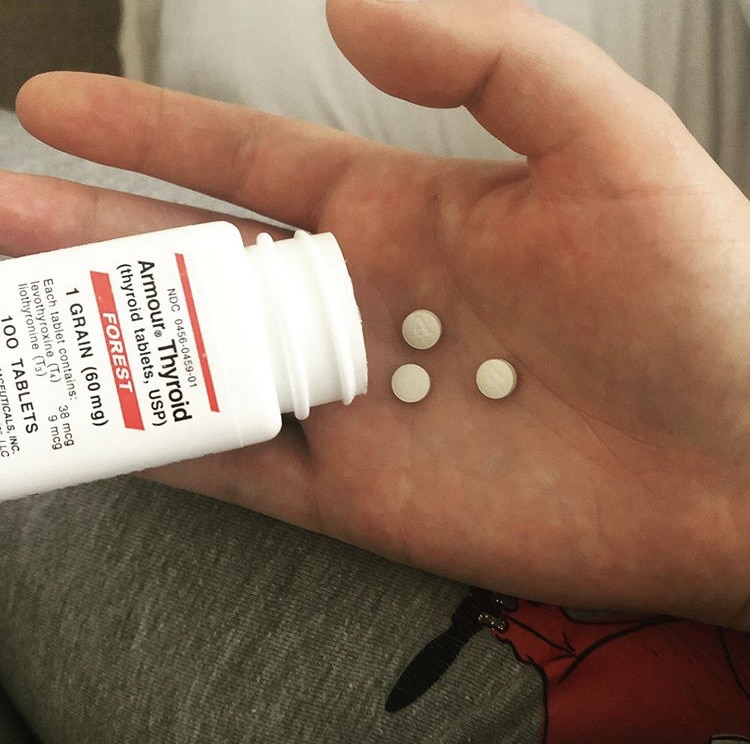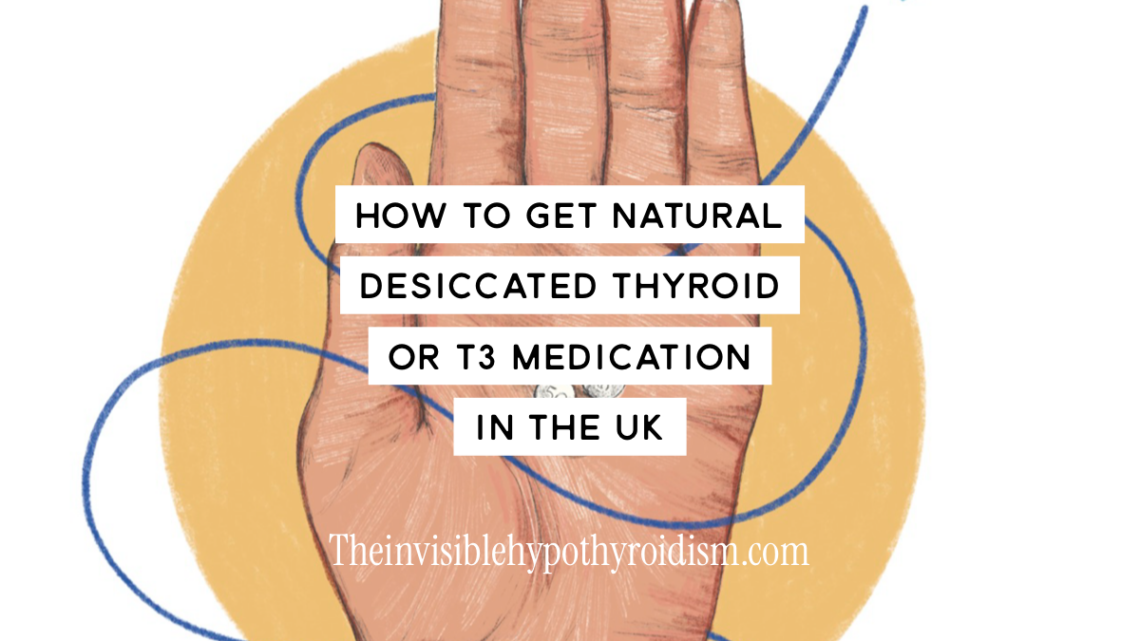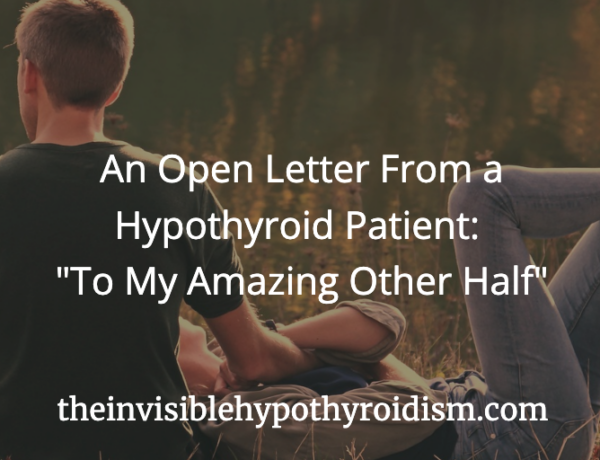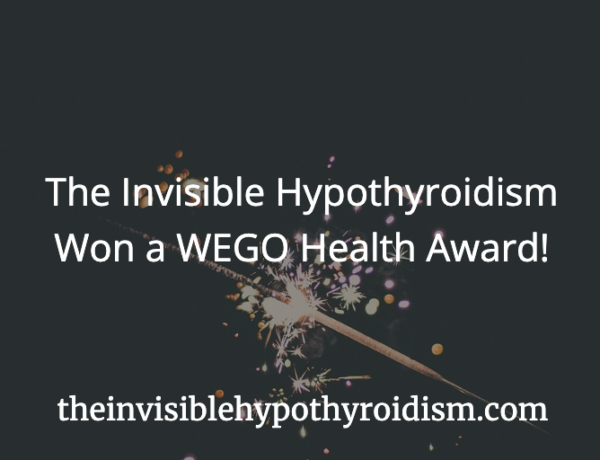In the early days of my thyroid diagnosis, on Levothyroxine to treat Hypothyroidism but feeling frustrated that I only felt more and more worse as time went on, I delve in to researching other patient experiences. And I’m glad I did, as it was through this that I discovered other options to Levothyroxine exist.
Not that my NHS GP had ever mentioned them, and this is where we often hit a wall in the UK in regards to hypothyroidism treatment options.

When we read about other options for hypothyroidism treatment, whether online, in books or in podcasts, it can be really frustrating to find out that a lot of the information is referring to living in the US, where options are more easily accessible. Here in the UK, on the NHS, NDT or T3 synthetic medications (Liothyronine, Cytomel) are not routinely prescribed as they are not licensed medications. Therefore, it is incredibly difficult for most people to access them.
Why is it Hard To Get T3 and NDT in The UK?
What does it mean for medication to be ‘unlicensed’? It means that a doctor has to give a very good reason to prescribe it, taking full responsibility for its use, and risking losing their ability to practise medicine if found to be irresponsibly prescribing and dosing these medications, for example.
There is a lot to put a doctor off from prescribing this medication, especially on the NHS. Therefore, it is very rarely prescribed on the NHS, and this creates an ongoing cycle, as it is so rarely prescribed, that many UK doctors continue to feel a lack of confidence in dosing, managing and testing thyroid levels on these types of medications. They never see the benefit it can bring to someone’s health and life.
Why are they unlicensed? There is the continued belief that T4-only synthetics, such as Levothyroxine, are adequate for everyone, and do the same job as any other thyroid hormone replacement medications, however, we thyroid patients know that this isn’t the case. While T4-only medications do work well for many, they do not work well for all of us.
The cost of NDT for example also cannot be ignored, which is also a factor for the NHS. The controversy over the price rise of Liothyronine around five years or so ago made big news, and many thyroid patients who had this medication withdrawn on the NHS are still without it.
I obtain my thyroid medication privately; a combination of Levothyroxine and NDT (Armour Thyroid). To compare their prices and thus, how much more it would cost the NHS too: the Armour costs me around £160 per month (dosage: 180mg), compared to Levothyroxine costing me just £6 per month (dosage: 25mcg).
Is It Impossible To Get It on The NHS?
It can be hard, but it’s not impossible. NDT and T3 is available on prescription by the NHS in the UK, on a named-patient basis. Despite some claims you may hear, it is made according to certain quality standards and is safe for use in individuals who meet criteria and have a knowledgeable doctor who knows how to dose and monitor it correctly.
What can influence whether you are prescribed these medications is unfortunately, the area in which you live in. Referred to as ‘The Postcode Lottery’, there are regional disparities in the current access to these medications, especially T3. Whether you are able to access this treatment on the NHS can be dependent on your local CCG, and factors at the GP and Integrated Care Board level.
A follower of my Facebook page wrote this:
“I won’t lie – getting NDT on the NHS was pretty tricky. Often depends on luck of the draw post codes and CCG’s. Getting Liothyronine is more likely than NDT but is still tricky. I get my NDT prescribed by the NHS now after years of self-sourcing online.”
Tips for wanting to obtain NDT or T3 on the NHS:
- Ask local pharmacists which doctors prescribe your desired medication. They can often point you in the right direction.
- Ask for support in the ITT Facebook group – they can advise on navigating the correct doctors in your area, as well as the ‘post code lottery’ status in your area.
Self-Sourcing Thyroid Meds
In truth, I asked to try NDT to almost every GP at my NHS practise and every single one refused, either saying it didn’t exist anymore or that they hadn’t heard of it. Until one day, when I went in armed with a letter explaining exactly what I would like and why I felt so frustrated.
I nervously sat, quietly, until the doctor had finished reading it and casually said “Let’s refer you to an endocrinologist.”
He admitted that he didn’t know about NDT but that a thyroid specialist should. I was incredibly relieved to finally be listened to. Was I finally going to get a different medication to try?
Unfortunately, the endocrinologist told me that his board would not allow him to prescribe NDT on the NHS, and that it is widely discontinued now that Levothyroxine is favoured.
In 2015, after a lot of research, and six months on Levothyroxine with my health and life in tatters, I made the difficult decision to self-source Thyroid-S, a brand of NDT from Thailand. I could not afford private healthcare as both my partner and I were students at the time and were already strapped for money, even with my strict budgeting of everything. I felt it was my only option if I was to recover my health.
For around 3.5 years I purchased NDT online for around £30 per year and, with monitoring and input from my NHS GP, saw my health dramatically improve. I recovered all quality of life and could not believe it.
However, I did not want to self-source medication forever. I always felt anxiety around taking something non-prescribed, that could be literally anything. So when I was able, when our finances eventually allowed in 2019, I decided to pursue a private prescription for NDT.
Obtaining a Private Prescription
Step 1: I needed to find a doctor who prescribed it. I asked around for recommendations in online forums and Facebook groups, I google searched and contacted the charity Thyroid UK for their list of recommended practitioners. On this list, they had doctors open to prescribing NDT and T3 medications, so I started contacting them to find the right fit.
Related: How to Find a Good Medical Professional for Your Thyroid Condition
Step 2: With a list of criteria I wanted the doctor to meet, I emailed and called their offices to confirm how it worked, all costs associated with initial appointments, ongoing appointments, prescriptions charges, blood tests and more.
My criteria included:
- a doctor who would prescribe me NDT.
- a doctor who could confidently dose NDT.
- a doctor who goes by the FULL thyroid panel (not just TSH).
- a doctor who would aim for optimal levels instead of just ‘in range’.
- a doctor who had a combined mainstream and functional medicine approach.
- a doctor who, if located far away, was happy to offer telephone appointments.
- I also ideally wanted a doctor who would be happy with me using Medichecks for my testing instead of his labs, to save me a lot more money.
Using Thyroid UK’s list, I did deep dives in to each doctor’s testimonials, websites, credentials and more, also checking they met my criteria above.
Step 3: I chose a doctor and had an initial appointment with them. I created a written timeline of my health issues, how long I had been on my current self-sourced thyroid medication, dosages and test results and how I was currently doing. The appointment went really well and he saw no reason why I could not continue NDT. He prescribed me the same dose of NDT I was on, but as the brand name Armour Thyroid, and I was over the moon.
There are various lists collated online with possible practitioners:
- The ‘Find a Doctor’ page on the American Thyroid Association website
- The ‘Find a Provider’ option on the Institute for Functional Medicine website
- The American Association of Clinical Endocrinologists List
- The ACM database
- The Find a Thyroid Specialist list by Thyroid Cancer Survivor’s Association
To This Day
To this day, I am still on prescribed NDT – Armour Thyroid and Levothyroxine together, to be exact. It is expensive and I’ve made sacrifices to be able to afford it but even so, for many people, the costs of obtaining this medication remains out of reach for many people. As we work to hopefully change this and make NDT and T3 medications more accessible via the NHS for example, we can continue to share our experiences and help one another.
Self-sourcing my NDT was not something I wanted to do but more something I felt was a necessity, as my health was in such a poor place on levothyroxine alone. That being said, I always have to remind readers of the risks associated with buying medication off the internet, without a prescription and without a doctor’s guidance. You can be purchasing absolutely anything in those tablets. But if that isn’t enough of a reason to make these medications more widely accessible on the NHS, then I don’t know what is.

Read more about my personal experiences as a thyroid patient in my bestselling book.
Be Your Own Thyroid Advocate: When You’re Sick and Tired of Being Sick and Tired, which builds on this article and discusses how I got my health and life back on track.





No Comments